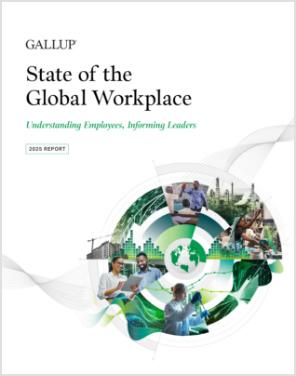This spring, the World Bank’s chief economist Indermit Gill made a startling claim:
“A lost decade could be in the making for the global economy. The ongoing decline in potential growth has serious implications for the world’s ability to tackle the expanding array of challenges unique to our times -- stubborn poverty, diverging incomes, and climate change.”
The message is clear. Economic growth is slowing. And if we don’t increase global GDP, every other problem gets harder to solve.
So, what can leaders do today to potentially save the world?
Gallup has found one clear answer: Change the way your people are managed.
In this year’s State of the Global Workplace report, we estimate that low engagement costs the global economy $8.8 trillion. That’s 9% of global GDP -- enough to make the difference between success and failure for humanity.
Poor management leads to lost customers and lost profits, but it also leads to miserable lives. Gallup’s research into wellbeing at work finds that having a job you hate is worse than being unemployed -- and those negative emotions end up at home, impacting relationships with family. If you’re not thriving at work, you’re unlikely to be thriving at life.
This report captures the voice of the world’s employees to help leaders make better decisions. There are some positive trends, but also a lot of work to do. Here’s where leaders should start:
- Focus on your most winnable employees. Nearly six in 10 employees are quietly quitting, but they are likely to become engaged with a few changes to their workplace.
- Give them a better manager. In the past three years, Gallup has used our best science to train over 14,000 managers to be effective coaches. Nine to 18 months later, their teams’ engagement ranged from 8% to 18% higher.
By switching to proven, science-based management, organizations could change the course of the economy -- and world history. It’s that important.





